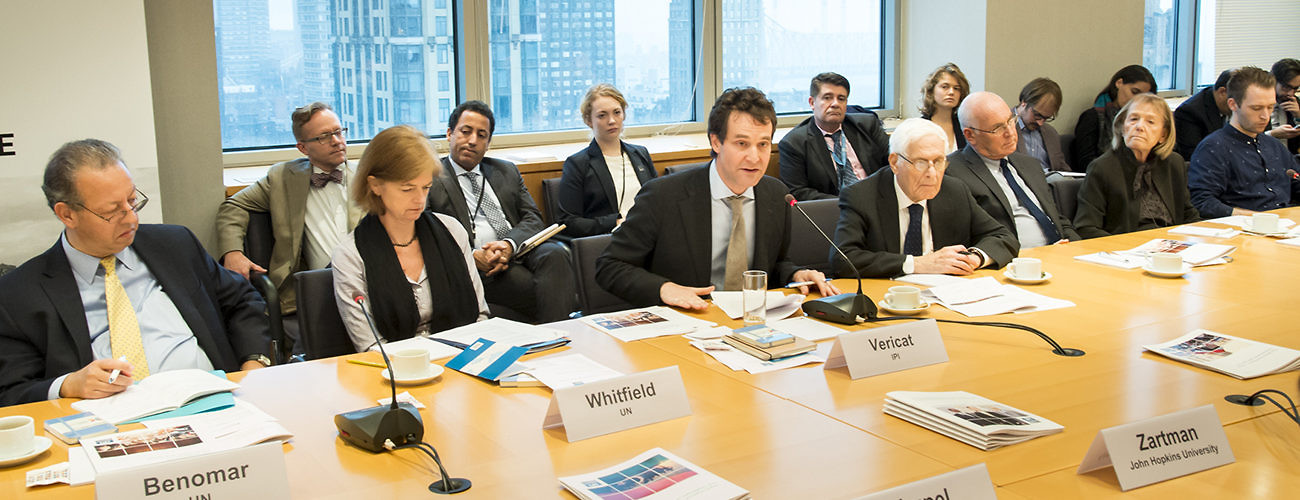A discussion on mediation in the context of the ongoing conflicts in Libya, Syria, and Yemen drew more than 60 participants, including high-level diplomats and United Nations officials, to the Permanent Mission of Germany to the UN on November 30, 2016.
The expert group of panelists included UN Under Secretary-General Jamal Benomar, who for 4 years was the Secretary-General’s Special Envoy to Yemen; William Zartman, Professor, Johns Hopkins University and expert in the field of negotiation analysis; and Teresa Whitfield, Officer-in-Charge, Policy and Mediation Division, UN Department of Political Affairs.
The event was to share the findings of a new IPI paper, “Lost in Transition: UN Mediation in Libya, Syria, and Yemen,” which was co-authored by José Vericat and Francesco Mancini. The paper is the result of research carried out by IPI over the last three years, including interviews with most of the major actors involved. It lays out a set of lessons to be used as the international community continues to attempt to solve conflicts, while focusing on four axes: mission and mandate, impartiality and inclusivity, entry and consent, and strategy and leverage.
The conversation was conducted under the Chatham House rule of non-attribution.
Comments from the participants included:
- In some cases, conflicts don’t meet UN definition of request for mediated intervention — know what you are getting into
- The role of mediators is central, but they should not be blamed for the outcome
- Mediators need clear mandates from the UN Security Council
- A perception that regime change will be the outcome is usually to the mediation’s detriment
- Great powers should not be prioritized over local actors
- The most successful transition after the Arab uprisings —Tunisia—had the least UN involvement
- Use of social media can be complicated; attempts to get real story out can be countered online by rumors
The paper explores the tools at a meditator’s disposal. The expert discussion revealed while a mediator’s main tool is persuasion, this influence rests on contextual leverage. It is important to consider two questions, “Is the situation ripe for mediation? Will the mediator be supported in his or her mandate?”
Participants agreed that local context matters—each situation has separate characteristics—but equally important to a successful outcome is getting the mediation process design right.
Another recurring discussion point was the challenges the mediators face in maintaining impartiality. “If we lose our impartiality, we have nothing,” said one participant.
The event concluded acknowledging that these crises reveal a common truth—that they can only be settled by political solutions, rather than military means.
Heiko Thoms, Deputy Permanent Representative of Germany to the UN, gave welcoming remarks, in which he emphasized why it is important to talk about mediation. “In the end, people will have to sit around the table to find a way ahead,” he said.
Adam Lupel, IPI Vice President, moderated the conversation. He encouraged participants to consider the difference between mediation for reconciliation and mediation for transition.
The paper is the latest in a series on mediation, supported by the governments of Germany and of Finland.
The event was co-organized with the Permanent Mission of Germany to the United Nations.








